 Home
Home


Trinket timer: another variation
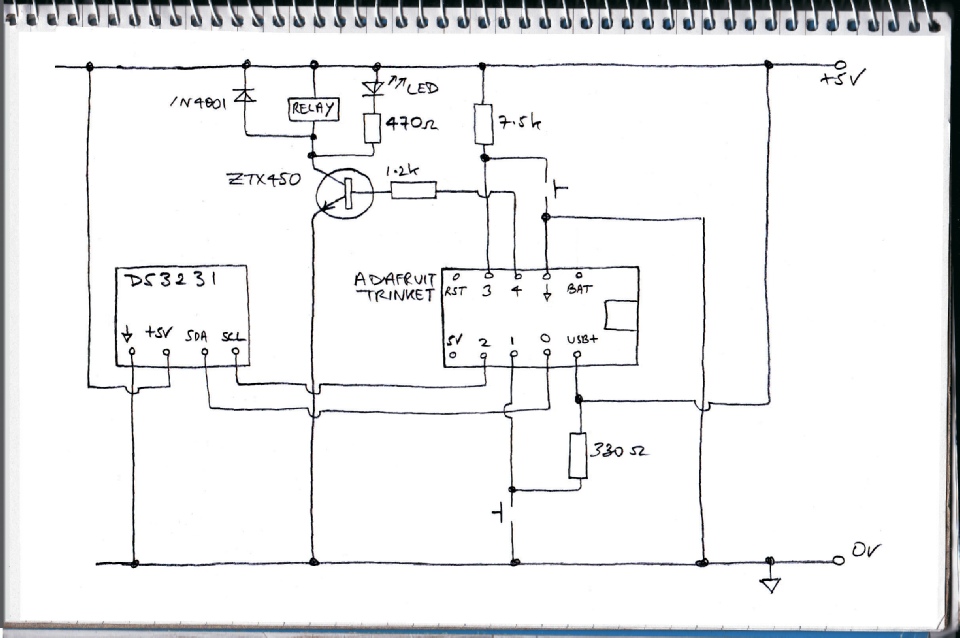
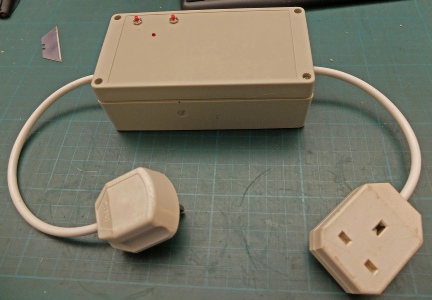
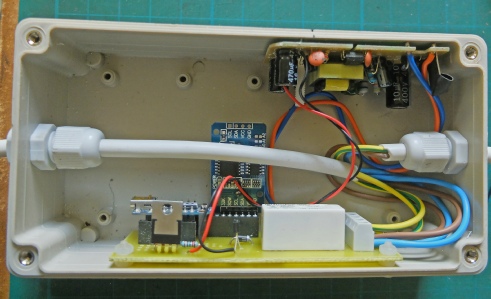
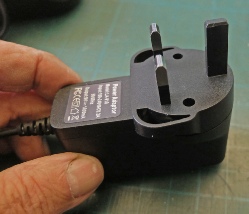
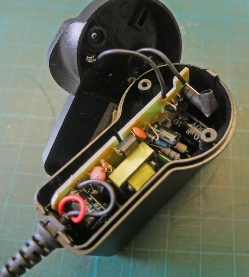
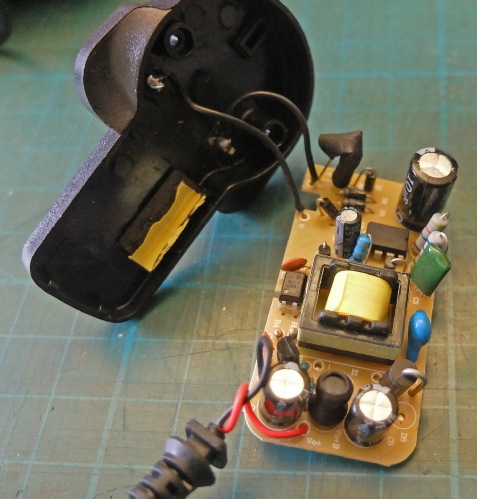
This timer uses a circuit similar to the security light timer. However, this one is fitted with a 13 amp socket so that any suitable appliance can be operated. (It should be noted that the relay used here is only rated at 10 amps so the plug should be fitted with a suitable fuse.) The idea with this unit is that a radio would be timed to come on in the morning and go off last thing at night to give the impression that the house was occupied. The software would allow some (pseudo) randomness in the exact time the timer turned on and off. A couple of push buttons are included to over-
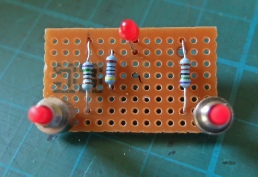
A switched mode 9 volt, 1 amp power supply was dismantled and used in the unit together with a 7805 regulator as in the previous timer.
Although a custom designed PCB was used for the main circuit, a piece of strip board was used to mount the push buttons, LED and their resistors.
On reflection, I should have used pin 4 as an input for the switch and used pin 1 for the relay driver. The on-
The program can be downloaded here. I struggled over it as while I was working on it there was one of those cases where an error was so glaring that I just couldn’t see it for ages!
Mains filtering problem
One problem I have discovered with this project is that it seems to generate interference which our old FM radio seems to pick up. This seems to be coming from the switched mode power supply and probably signifies a lack of proper filtering on the AC input. The Internet suggests that this can be a common problem with cheap power supplies!